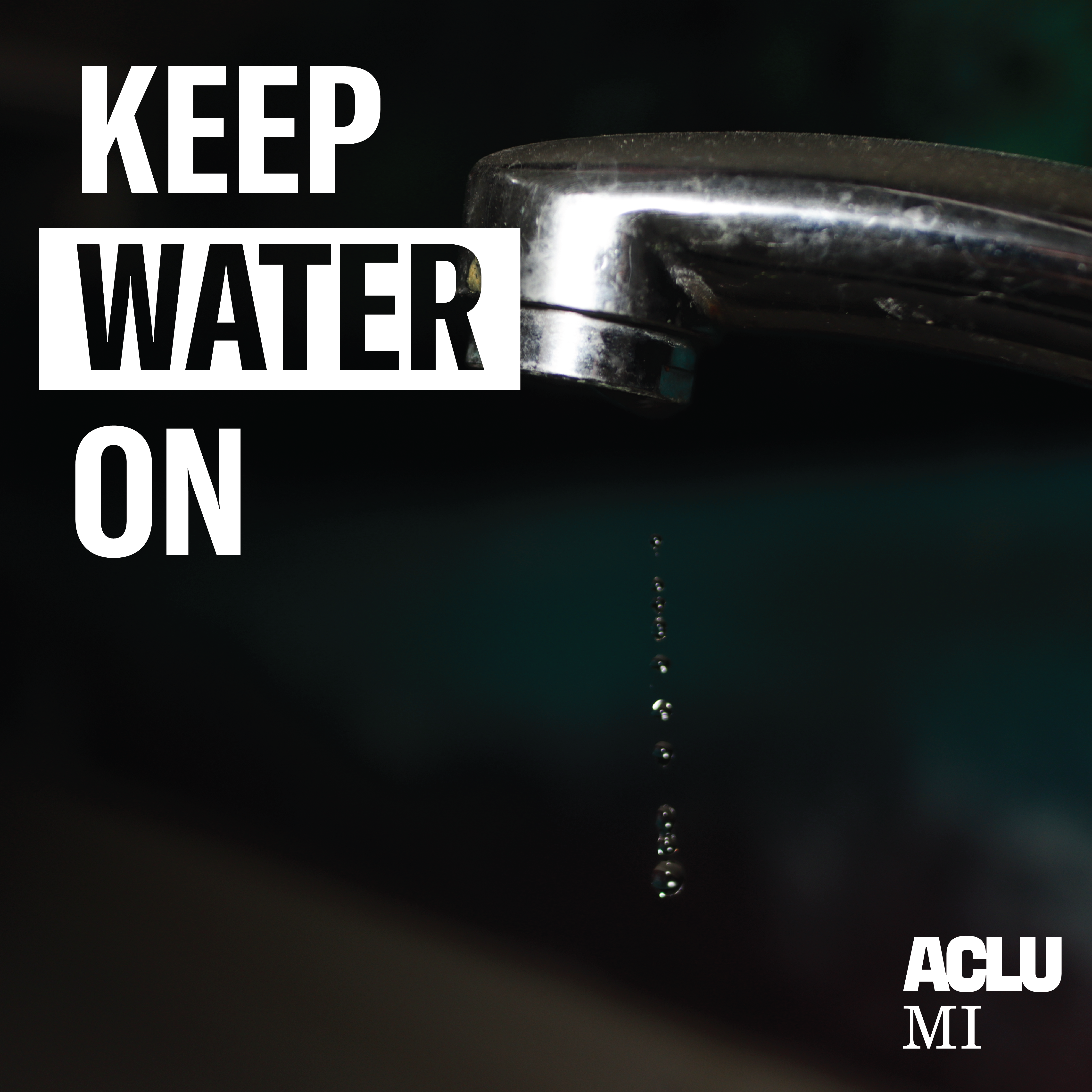A Mother’s Plea
For most of my life I paid little attention to our criminal legal system. Like most Americans, I naively believed that the system was equitable, with people who commit crimes getting what they rightly deserve at the hands of prosecutors dedicated to pursuing justice in a way that is fair.
Now that my family has been caught up in that very system for the past three years, I’ve come to realize how blind I was to it I was -- especially about local prosecutors and the power they wield over peoples’ lives. I’ve come to learn that the main goal of nearly all prosecutors is not to seek justice, but instead to push for convictions no matter the collateral damage for all involved. This philosophy and prosecutorial conduct are fueling the mass incarceration problem we face today in the United States.
As pointed out in the ACLU report Unlocking the Black Box, which makes the compelling case that we need to demand more transparency from our prosecutors as one key way to begin changing a system that has clearly failed, our country now has nearly 25 percent of the world’s jail and prison populations despite having less than 5 percent of the world's population. We have more people behind bars than anywhere else on the planet.
My son Gabe is one of them.
My family’s interaction with the criminal legal system began in 2017 when Gabe (then 24) was arrested for having eight pictures on his phone that he’d taken of two adolescent boys’ genitals. Gabe did not sell these pictures. He did not put them on the internet. The pictures were only on his phone. I’m not saying Gabe was innocent of any wrongdoing. He committed a crime, and deserved to be held accountable. Throughout the process there was not one minute that Gabe did not take responsibility for his actions. But none of this mattered to the Grand Traverse County Prosecutor. It was truly shocking and deeply disturbing to see the vengeance with which she went after Gabe. In that regard, justice was definitely not served.
I say that because after he was arrested, Gabe – who attended the University of Michigan with plans of c becoming a doctor – began seeing a counselor. After some time in therapy, what emerged was that Gabe himself was a victim of many sexual assaults. First at age 11, when he was molested repeatedly by a teenage boy who lived in our neighborhood. Second by a trusted friend when he was in high school. And lastly in the later years of college when he was a victim of a violent assault. The trauma of these assaults and molestations, which Gabe kept to himself because of the shame he felt, affected him deeply.
As I said, Gabe never told us what happened to him. Others did not notice any difference in his behavior. He continued to be a leader among his peers, remained fun and outgoing around others, and never got into any trouble. But, as a mother, I could tell that something had changed. I could see him becoming more withdrawn, but never pressed him to tell me what was going on. Looking back, I wish I had. Maybe we wouldn’t be where we are today if I did. One of the things the counselor explained was that Gabe’s behavior as an adult was directly related to the abuse that he suffered as a child and the ongoing trauma of his early adulthood.
The counselor expressed with certainty that, with treatment, Gabe’s illegal behavior would become an aberration that would not be repeated. He needed help, not a lengthy prison sentence, the counselor said. To this day we support Gabe’s treatment and provide access to continue his relationship with his counselor by setting up phone appointments for them to work on his treatment. His progress has been truly amazing.
Gabe is not a monster; he certainly didn’t deserve to be treated as one. But the prosecution clearly felt the need to create the image of a “monster” to get a conviction. Sadly, our local county prosecutor would believe none of what the counselor mentioned would be possible. In fact, rather than trying to see Gabe as a person suffering from the abuse he’d experienced while just a child, his case was methodically pursued to inflict the harshest punishment possible. The prosecutor viewed my son as a crime and a criminal, not a person. By not assessing my son individually to see why this happened, and to find alternatives to help both the person who was offended and the person who did the offense, she unilaterally ignored these options. Gabe could have been charged with a lesser crime carrying much less severe penalties. Spending much of his life in prison could have been avoided, with time spent in the county jail being the punishment, and continued counseling a requirement. But the prosecutor would have none of that.
This shows the sweeping power of prosecutors: The ability to choose which crimes a suspect will be charged with, and what penalties to pursue. In Gabe’s case, lesser charges could have been applied, shaving years off his sentence, and possibly resulting in no prison time at all. Instead of showing compassion and a sense of fairness, our prosecutor pursued charges that generated media attention but certainly didn’t serve justice.
Making a hellish situation even worse, the federal government was tipped off and decided to prosecute Gabe as well. He was convicted of both state and federal charges, with the latter being much harsher. Fortunately, a judge agreed to allow the sentences to be served concurrently. That was the only decision even close to a break that he got. Even so, Gabe is facing the grim prospect of serving a minimum of 15 years in a federal prison. Now 27, he will be a middle-aged man by the time he regains his freedom.
Even though we are more than three years into this ordeal, all this remains painfully difficult for me to talk about. But I feel compelled to speak out because change must be made if we are going to have a justice system worthy of its name.
One change that we, as voters, can demand is the quality of the prosecutors we elect – the vastly powerful official who decides who to charge, what to charge, and ultimately how many people end up sitting behind bars. I can tell you from experience that we should be demanding compassion and empathy from our prosecutors, and not just for the victims of crimes, but also for people accused of committing them, because life circumstances are complicated and must not be ignored.
Coercing pleas, winning convictions, and pushing for harsh prison sentences does not equate to justice. Real justice means breaking down the complicated, and working to arrive at a place where fairness, not retribution and punishment, is accomplished. Real justice is smart for our communities, smart for our safety, and smart for our families who are also doing “time” with their loved ones.
One thing that gives me hope that is the sense that our society is undergoing profound changes. As the COVID-19 pandemic continues to spread, making us all feel vulnerable – especially those locked behind bars unable to social distance and protect themselves, and protestors continue to take to the streets in the wake of George Floyd’s tragic murder at the hands of police – people everywhere are opening their eyes to the need for the fundamental transformation of our criminal legal system.
One way to help bring that about is for all of us to begin putting pressure on our local prosecutors to increase transparency. In that regard, I wholeheartedly agree with the ACLU that people everywhere start demanding that prosecutors embrace reform by taking these actions:
- Systematically gather and publish quarterly statistics on race, ethnicity, and gender of defendants along with information about charging decisions, convictions, deferred prosecutions, and diversion program placements.
- Create a Conviction Integrity Unit that reviews innocence claims, due process violations, corrupt law enforcement practices, and excessive sentences.
- Implement a policy of open file discovery through which defendants or their attorneys have timely access to the prosecutor’s entire files.
- Create a community advisory board that represents impacted communities including immigrant communities, formerly incarcerated communities, communities of color, and the LGBTQ+ community to determine the priorities of the prosecutor’s office.
- Publish all office policies and protocols online.
This type of transparency is an essential step toward ending mass incarceration policies that have locked up millions of people, ripping them away from their families, and shattering neighborhoods throughout Michigan. It is imperative to collect and analyze information on how prosecutors contribute to these harms to hold them accountable and to design solutions to reverse the crisis we face.
I believe people are finally starting to see the massive need to dismantle our system of mass incarceration. At least I pray that is the case. And if you think none of this matters because you or a loved one will never get caught up in the system, all I can say is that I once thought the very same thing.

